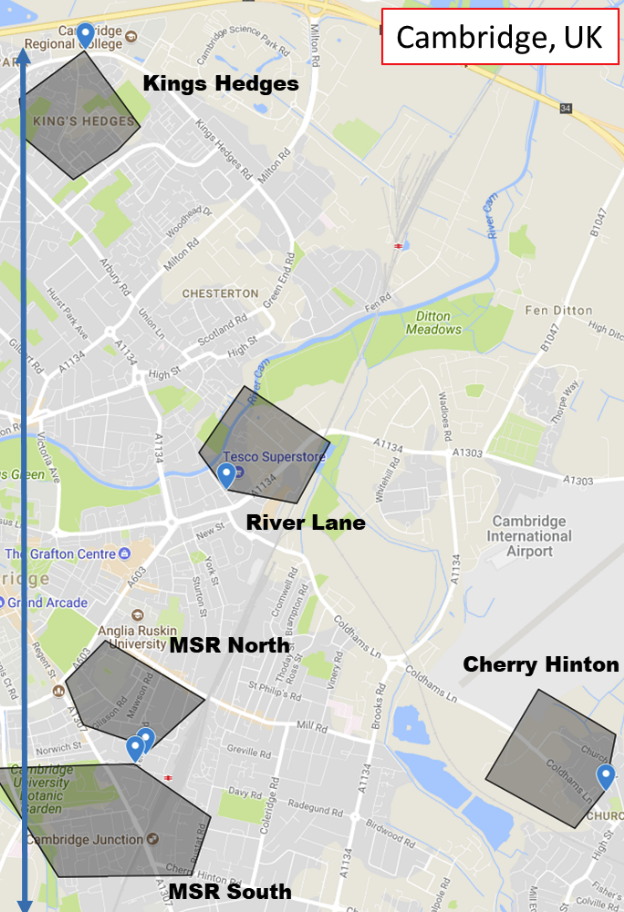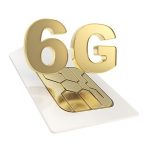Microsoft and ip.access Test 4G White Space Wireless Broadband Tech
Small cell provider ip.access has joined Microsoft’s on-going Project Belgrade, which is using the City of Cambridge UK as a testbed to demonstrate that TV White Space (TVWS) technology can be used to connect residential homes to affordable WiFi style wireless broadband services.
The technology has only been around for a few short years and remains unique due to the way it harnesses the spectrum gaps that exist between television channels (470-790MHz), which can deliver extremely good coverage. Gaps like this are normally intended to help reduce the risk of interference between channels but by adopting a dynamic database (automatically adjusts for changes in TV spectrum assignments) they can also be used to deliver data.
Networks like this can be complicated to setup but Nominet and Broadway Partners have already built a number of rural wireless broadband networks using TVWS, such as around Loch Ness and on the Isle of Arran in Scotland, as well as in parts of Wales (e.g. Llanarth in Monmouthshire). Some of these are able to deliver superfast speeds of ‘up to’ 50Mbps from around £30 inc. VAT per month (example).
Advertisement
Similarly Project Belgrade is also making use of TVWS, albeit mixing it with cellular radio technology (LTE / 4G). Microsoft notes that some of the bands, most notably the 600MHz and 700MHz bands (700MHz is due to be auctioned for 4G / 5G Mobile operators and after that Digital TV will move into 600MHz), overlap with the TVWS spectrum and compatible hardware can thus be used as a TVWS device.
The trial in Cambridge only involves around 30 residents, with 20-40GB (GigaBytes) of traffic each day, across several areas. Each of these users connects via a small Novatel 6620 MiFi device (i.e. a 4G hotspot that distributes its service via WiFi), which is placed inside their apartments.

Apparently the maximum indoor range observed is around 700 metres, while in outdoor tests they were able to reach connectivity at about 1.5km (it’s unclear if this is being measured from the mast/cell or MiFi device). The maximum link throughput observed was 60Gbps (with 2×2 MIMO on 5MHz duplex link) and all clients get at least 4Mbps, which isn’t going to set any records.
The role of ip.access in this has been to provide their E40 Small Cell (on band 13 / B13) technology to the trial, which was combined with a Shireen pico cell amplifier and Amphenol panel antenna (FDD 5MHz LTE MIMO 2×2, 36dBm EIRP downlink, 23dBm uplink).
Advertisement
Nick Johnson, ip.access’ CTO, said:
“The internet touches almost every aspect of modern lives. Yet, even in developed markets there are still significant numbers of people who are not connected to it, either due to limited coverage and connectivity in the area or limited funds to pay for such connectivity. Our project proves that cellular technology in TVWS is a cost-effective and high quality solution to these issues.”
One of the reasons why this approach is considered to be so affordable is because some of the existing LTE devices (as above) can operate on TVWS frequencies with no modifications, while the cost of small cell kit is similar to the price of today’s TVWS hardware. The use of TVWS still required ip.access’ E40 small cell to run an open-source database for spectrum management but this is said to be compatible with general small cell architecture.
The approach being taken by Microsoft is interesting, although it’s also possible that the on-going expansion of 4G coverage and future 5G services (particularly at 700MHz in the future) may conspire to erode some of its benefits. Lest we forget that it may also have some applications in other countries.
Mark is a professional technology writer, IT consultant and computer engineer from Dorset (England), he also founded ISPreview in 1999 and enjoys analysing the latest telecoms and broadband developments. Find me on X (Twitter), Mastodon, Facebook, BlueSky, Threads.net and Linkedin.
« 7200 Hereford and Gloucestershire Premises to Get Fibre Broadband UPDATE
















































Comments are closed